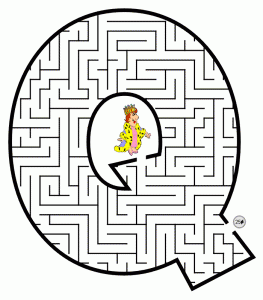Question on Dispensationalism, Israel and Continuity, part 1
Rob,
how would you reply to the notion that dispensationalism is a relatively new (just over 100 years old according to some) belief, and that it is not biblical in origin? Also, why is it
so important to clarify whether the Bible is referring to Jews or Christians ( or both) when it speaks of the “church”?
Lastly, is 1 Cor. 15:52 the only passage from which to build a theology of the rapture, and specifically a pre-tribulational rapture?
ANSWER:
DailyTheocentrism: The first step in contemplating God’s Sovereignty is to get over yourself
Psalm 103:1-22
Isaiah 40:1-8
and praise God for 1 Peter 1:22-25
DailyTheocentrism: Prayer and Pragmatism – one and the same?
One might say that if our prayers don’t change God’s mind, then why pray?
First answer – because we were told to . . .
DailyTheocentrism: The “Power of Prayer” that changes God’s mind is likened unto Open Theism, aka heresy.
I have heard countless pithy statements like:
– prayer changes things (meaning, “gets things done”)
– there’s power in prayer (just add incantation . . )
– we are empowered by your prayers (man-powered ministry)
– God’s will is activated by prayer (I guess a little leaven . . . )
– I felt your prayers (what’s a little animism between friends?)
I bring these few up among many others to demonstrate how we have it all on it’s head. If prayer does change anything, it changes the one who is praying as they conform the the sovereign will of God. See the Model Prayer for help: Matthew 6:9-13
He is the Creator, Sustainer and Judge. We go to Him to get answers, not give them. And there we find grace and mercy and care.
There is no power in prayer, rather there is power in God.
AskRob: Question on Suffering and the Will of God
Rob, you listed as one of God's will for us is to suffer. By suffering . . .
does this mean suffering persecution for the sake of Christ? Or does the day to day suffering as the result of living in a sin-filled world "count" as suffering? Like (a couple with a handicapped child). Or is it what our attitude is toward all suffering? I know this may seem trivial but no one really defined it for me. Christ talks about suffering for His sake, but Paul seem to imply not just the persecution he experienced but the day to day reality of life, like his "thorn in the flesh" (whatever that was). This thorn doesn't appear to be result of persecution but just from living in this cursed world. Hope I made myself clear. Its sometimes hard to put down on paper..
Yes, well this is just a tip, but here you go: Read the rest of this entry »

